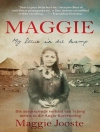In ‘A Son of the Middle Border, ‘ Hamlin Garland intricately weaves a rich tapestry of autobiographical narratives that illuminate the trials and tribulations of rural life in the American Midwest. Through a blend of naturalistic literary style and vivid prose, Garland captures both the harsh realities and the understated beauty of agrarian existence. The work is set against the backdrop of the late 19th and early 20th centuries, a pivotal time in American history characterized by rapid industrialization and cultural immigration, rendering Garland’s exploration of the Middle West profoundly relevant and resonant. Hamlin Garland, born into a farming family in 1860 in Wisconsin, used his own experiences to frame the narrative of his youth, reflecting the struggles of early farmers who faced uncertain futures. Educated through the self-study of literature, he became a prominent voice of the local color movement, pushing against romanticized depictions of rural life to showcase its unvarnished reality. His deep connection to the land and its people profoundly informed his storytelling, making this book a critical reflection of his own formative experiences. Readers who seek a deeper understanding of America’s cultural landscape and the emotional weight of rural hardships will find ‘A Son of the Middle Border’ an essential addition to their literary exploration. Garland’s authentic voice and richly detailed observations offer profound insights into the human condition, making this work both a historical chronicle and a timeless narrative of resilience.
Circa l’autore
Hamlin Garland (1860-1940) was a prolific American novelist, poet, essayist, and short story writer, who became particularly well-known for his depictions of Midwestern rural life. Born in West Salem, Wisconsin, Garland grew up on various homesteads in the Midwest, an experience that deeply influenced his writing. He was a prominent figure in the movement of American literary realism, and his contributions are often associated with the ‘local color’ movement, which sought to faithfully represent the vernacular and customs of America’s different regions. Garland’s most famous work, ‘A Son of the Middle Border’ (1917), is an autobiographical narrative that vividly portrays the hardships and transformations of family life in the American Midwest. Through it, and his many other works, Garland captured the complexities of the transition from frontier life to a more settled and industrialized American landscape. His writing style is marked by a blend of realism with a romantic strain, capturing both the grit and hope of the pioneer spirit. Among his numerous accolades, he was awarded the Pulitzer Prize for literature in 1922 for his book ‘A Daughter of the Middle Border’. A staunch advocate for social reform, Garland’s literary contributions extend beyond storytelling to include vocal support for American Indians’ rights, which influenced his later work. His legacy thrives in the way he encapsulated the transformation of American society during a time of great change.












